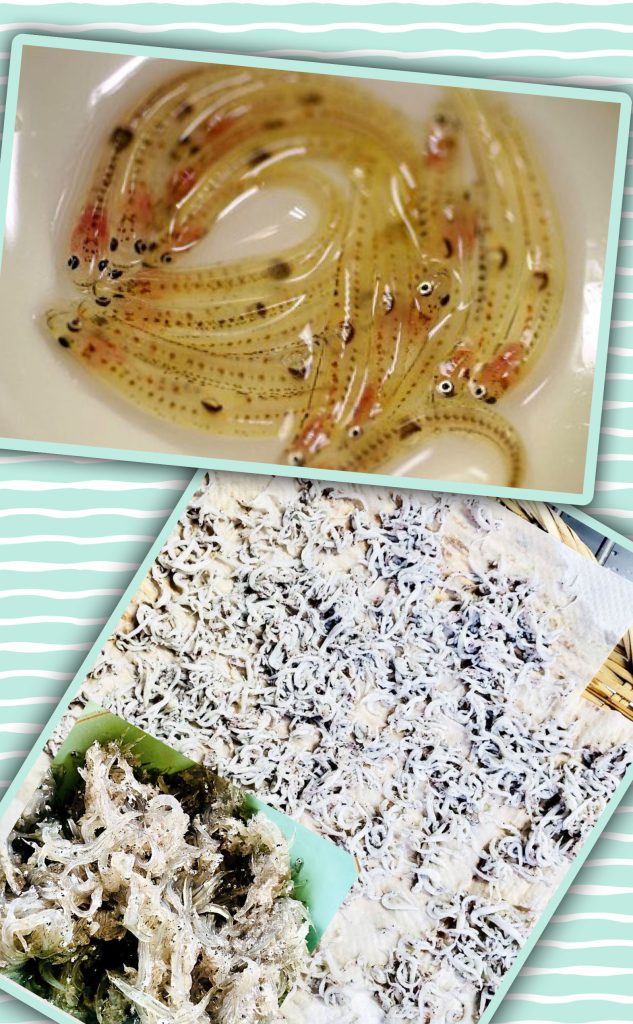
Shirasu in Kansai is in season now. Above all, the eating alive of Shirasu can only be enjoyed locally. It is a well-known way to eat shirasu that has been used in a container with vinegar and soy sauce. Some people say that chewing is more delicious because it feels sweet and fat. In the first place, shirasu is a general term for transparent fry that do not have pigments on their bodies, such as sardines, eels, sand lances, sweetfish, and herring, and are about 1 to 2 cm in length. It is said that these fry became white when boiled, so they came to be called shirasu. Most of the shirasu on the market are juvenile anchovy, sardine, and etrumeus sadina. Anchovy lays eggs almost all year round and peaks in spring and autumn. The spawning season for sardines is from winter to spring, and for sardines from April to June. Shirasu fishing around Osaka Bay and Kii Channel starts around the end of April every year and continues until around December. Spring shirasu at the beginning of the fishing season was born mainly from the Kii Suido in the open sea area, and came into Osaka Bay by the flow of the tide, and it is the most delicious food with fat.
関西のシラスは今が旬です。中でもシラスの踊り食いは地元でなければ味わえません。容器で活かしたシラスを酢醤油と共に啜り込むのがよく知られる食べ方です。人によっては、噛んだほうが甘さと脂を感じて美味とする意見もあります。そもそも、シラスとはイワシやウナギ、イカナゴ、アユ、ニシンなど体に色素を持たず、透き通った稚魚の総称で、体長約1〜2cm程度のものを指します。これらの稚魚は茹でると白くなるため、白子(しらす)と呼ばれるようになったと言われています。一般的に市場に出回っているシラスの多くは、カタクチイワシやマイワシ、ウルメイワシの稚魚です。カタクチイワシならほぼ一年中産卵し、春と秋にピークをむかえます。マイワシの産卵期は冬から春にかけて、ウルメイワシは4月〜6月です。大阪湾や紀伊水道あたりのシラス漁は、例年4月下旬ごろから始まり、12月ごろまで続きます。漁期始めの春のシラスは、主に紀伊水道から外海域で生まれ、潮の流れに乗って大阪湾内に入ってきたもので、脂も乗り最も美味しい物です。
